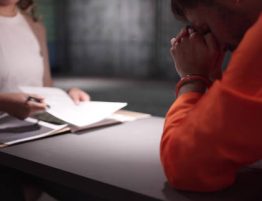During the five-year period between 2011 and 2016, the number of children in Florida who were subjected to A Baker Act rose by almost half. During the same time, Florida’s population rose by only 5.5 percent. Several highly-publicized cases involving young children have increased public consciousness. Florida sets no minimum age at which a child may be subjected to an involuntary mental health exam without a parent’s permission. In 2017 the Florida legislature passed a bill requiring that examinations of minors be initiated within 12 hours of arrival. They also created a task force to examine the rise in involuntary examinations. In November of 2017, the task force issued its report which explored some theories of why child involuntary psychiatric examinations have risen to this degree and recommended legal changes. The task force did not conclude why the numbers rose so much in recent years but did suggest several potential causes: changes in behavior due to social media and online bullying; increased insight among school, health, and police personnel; and lack of mental health resources before acute psychiatric episodes.
When looking at Baker Act examination criteria, it is obvious that mental illness alone is lacking to initiate a Baker Act. Instead, there must be “reason to believe” because of that mental illness there is either a substantial likelihood that the child will cause serious bodily harm to himself/herself or others as evidenced by recent behavior or there is a likelihood that the child will suffer from self-neglect that poses a real and present threat of substantial harm to the child’s well-being that cannot be avoided through the help of willing family members or friends or the provision of other services. These strict and often misunderstood criteria were written in consideration of constitutional concerns. The Supreme Court said parents’ due process right to care and control of their own children is “perhaps the oldest of the fundamental liberty interests recognized by this Court.” But school, health, and police personnel approach the issue from a need for treatment perspective.
The rise in child Baker Acts appears to be the result of a misunderstanding of constitutional rights. The Baker Act was not designed to control unruly be¬havior and it was never intended to be used if there are less restrictive environments outside of hospitalization. The application of a Baker Act in these instances disregards parental rights, yet it is routinely used in such situations. An unjust Baker Act causes trauma and reluctance to seek help for the child if help is needed.









